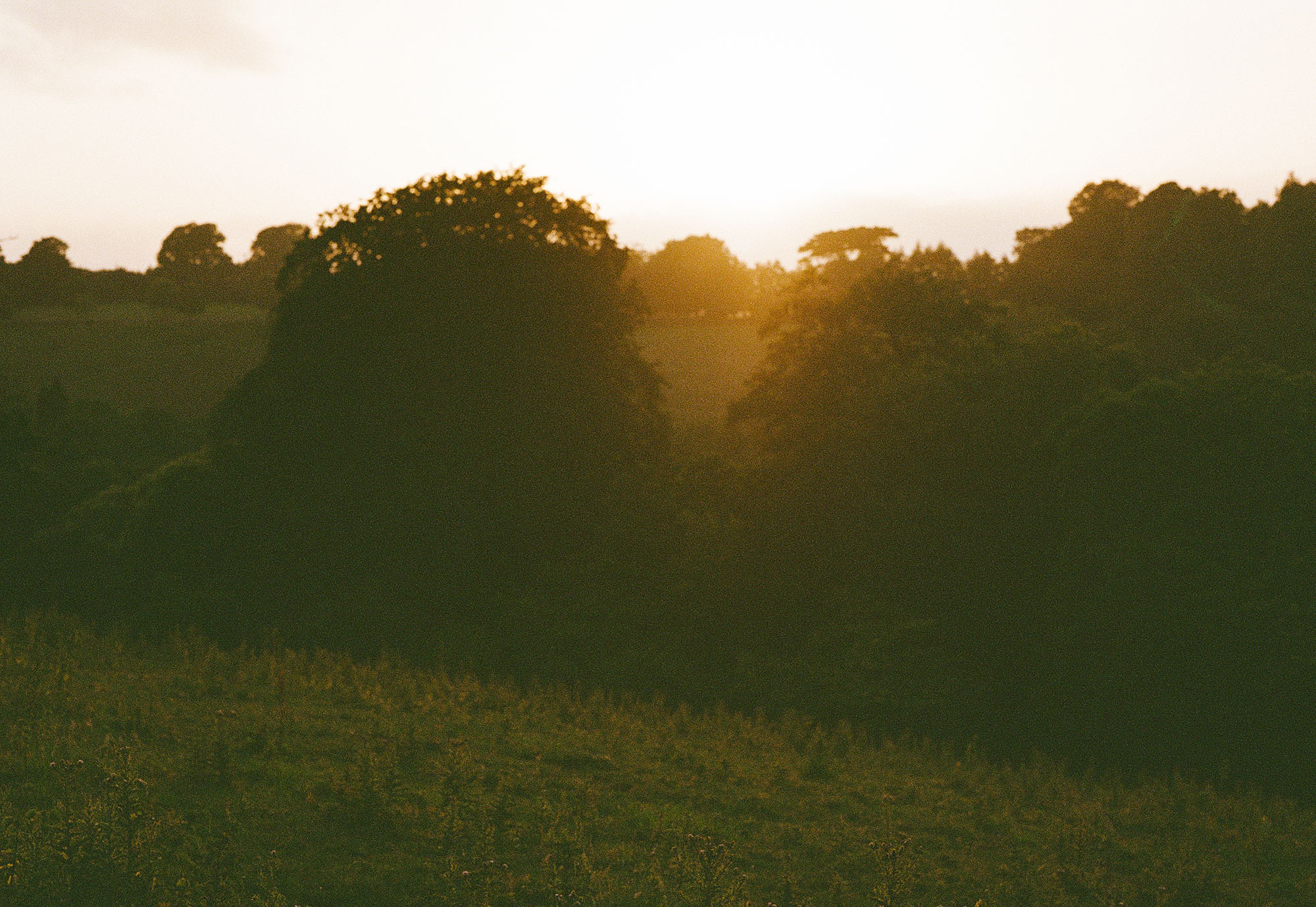
Photo by Kasia Murfet
Seeds of Radical Renewal: A Ten-Part Leadership Course (Applications Closed)
with Spiritual Ecology facilitators

Photo by Kasia Murfet
When we dare to face the cruel social and ecological realities we have been accustomed to, courage is born and powers within us are liberated to reimagine and even, perhaps one day, rebuild a world.
The world we have known is coming undone. The natural rhythms with which we align our lives are detaching from their predictable contours, and the mechanistic practices of timekeeping and habits of organization on which many of us have long relied can no longer hold. We are being called to reorient ourselves—and our ways of being—to a changed and changing Earth.
Within this shifting space lies the possibility of radical renewal: an opportunity to step through this threshold of change into deeper, wiser relations with the Earth; to discover new forms of leadership, and remember forgotten forms, that will help us usher in this transformation.
As we confront the unfolding degradation of our lands and waters, how can we orient ourselves to new ways of being in this time? How can we meet the legacies and histories we hold within us, and choose with responsibility and care how we will participate in them? How can practices of listening deeply to the Earth and uplifting voices beyond our own transform our relationship with the living world?
This ten-part leadership course offers emerging leaders the opportunity to deepen their skills in building and co-creating spaces of renewal, reciprocity, and reverence. The course offers an in-depth exploration of the field of spiritual ecology: an evolving philosophy that is rooted in the understanding that ecology, culture, and spirituality are interdependent.
With the guidance of guest teachers—including Emmanuel Vaughan-Lee, Dana Karout, Kalyanee Mam, Lyla June Johnston, David G. Haskell, Joycelyn Longdon, and David Abram—and within a like-minded community, participants will take part in facilitated discussion and personal reflections through written prompts, guided exercises, and storytelling.
The curriculum will be focused around three core themes: listening for the stories that want to be told, engaging with the animate earth, and fostering participatory leadership. Throughout the course, participants will be given required and optional reading and writing assignments designed to deepen the learning and exploration of these themes.
themes
Listening for the Stories that Want to Be Told
with Emmanuel Vaughan-Lee and Kalyanee Mam
What are the stories that need to be told in this moment of great change? What does it mean to listen deeply and closely—to ourselves, to each other, and to the living world? How can we let stories emerge organically, instead of letting our existing biases and beliefs dictate the outcomes of narratives? What happens within us when we fully open our hearts to each other and let stories come to life in the spaces between us? The work of restoration applies not only to broken human and ecological systems, but also to the role of the storyteller who witnesses and listens with authenticity and care.
Engaging with the Animate Earth
with David Abram and David G. Haskell
How can close attention to the natural world offer us models for nonbinary and decentralized approaches to leadership? By opening our senses, can we widen the gates of our perception and nourish creative possibilities? Through ways of being that are both informed and transcend scientific or naturalistic observation, we can rediscover an embodied knowledge of place and reground ourselves in care, love, and wonder for the Earth. In these sessions, we’ll explore the possibilities of spontaneous reciprocity, animism, reverence, and nonbinary thinking.
Leading from Below: Igniting the Power of the People and Places Around Us
with Dana Karout, Dr. Lyla June Johnston, and Joycelyn Longdon
How can we use our leadership skills to ignite the people and places around us? The world needs organizers who know how to channel the power and imagination of the social and ecological communities around us, weaving their strengths into a strong, collaborative tapestry. How do we move away from heroic narratives of leadership and instead ground ourselves in care and interdependence? By ecologizing our leadership, we can begin to dismantle systems of oppression and find futures beyond capitalism, settler colonialism, hierarchy, and heteronormativity. In these sessions, we’ll explore adaptive and kincentric leadership, rest, renewal, local ecological knowledge and education, environmental justice, and alternative visions for the future.
application & cost
Two iterations of this course are offered for 2024:
Iteration 1
February 7 – April 10, 2024
Wednesdays, 4pm–6pm (PST)
Iteration 2
February 8 – April 11, 2024
Thursdays, 10am-12pm (PST)
Application Deadline: Friday, January 12, 2024 at 11:59pm (PST)
Notification of Acceptance: January 19, 2024
The program costs $500. Some scholarships are available for those who need them. If you are accepted into the course, payment is due within one week of the first session. Cancellations made up to one week before course commencement will result in a full refund. After that, refunds will not be available unless under special circumstances.
Applications for this course are now closed. We plan on offering this course again in 2025, with applications opening by fall, 2024.
SCHEDULE
Iteration 1
| Topic | Date | Time |
|---|---|---|
| Introduction | February 7 | Wednesday, 4pm-6pm (PST) |
| Emmanuel Vaughan-Lee | February 14 | Wednesday, 4pm-6pm (PST) |
| Dana Karout, Adaptive Leadership, Part 1 | February 21 |
Wednesday, 4pm-6pm (PST) |
| Dana Karout,Adaptive Leadership, Part 2 | February 28 | Wednesday, 4pm-6pm (PST) |
| Kalyanee Mam | March 6 | Wednesday, 4pm-6pm (PST) |
| Lyla June Johnston | March 13 | Wednesday, 4pm-6pm (PST) |
| Group discussion | March 20 | Wednesday, 4pm-6pm (PST) |
| David G. Haskell | March 27 | Wednesday, 4pm-6pm (PDT) |
| David Abram | April 3 | Wednesday, 4pm-6pm (PDT) |
| Conclusion | April 10 | Wednesday, 4pm-6pm (PDT) |
Iteration 2
| Topic | Date | Time |
|---|---|---|
| Introduction | February 8 | Thursday, 10am-12pm (PST) |
| Emmanuel Vaughan-Lee | February 15 | Thursday, 10am-12pm (PST) |
| Dana Karout, Adaptive Leadership, Part 1 | February 22 | Thursday, 10am-12pm (PST) |
| Dana Karout, Adaptive Leadership, Part 2 | February 29 | Thursday, 10am-12pm (PST) |
| Joycelyn Longdon | March 7 | Thursday, 10am-12pm (PST) |
| Lyla June Johnston | March 14 | Thursday, 10am-12pm (PST) |
| Group discussion | March 21 | Thursday, 10am-12pm (PST) |
| Kalyanee Mam | March 28 |
Thursday, 10am-12pm (PDT) |
| David Abram | April 4 | Thursday, 10am-12pm (PDT) |
| Conclusion | April 11 | Thursday, 10am-12pm (PDT) |
instructor bios
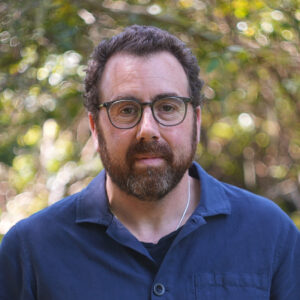
Emmanuel Vaughan-Lee
Emmanuel Vaughan-Lee is an Emmy- and Peabody Award–nominated filmmaker and a Naqshbandi Sufi teacher. His films include Earthrise, Sanctuaries of Silence, The Atomic Tree, Counter Mapping, Marie’s Dictionary, and Elemental. Emmanuel’s films have screened at NYFF, Tribeca Film Festival, SXSW, and Hot Docs; exhibited at the Smithsonian Museum and The Barbican; and featured on PBS POV, National Geographic, New York Times Op-Docs, The New Yorker, and The Atlantic. He is the founder and executive editor of Emergence Magazine. He lives and teaches in Inverness, California.

Dana Karout
Dana Karout is a leadership coach and research fellow at Harvard. She has worked with hundreds of people at Harvard and with various clients across the US and the Middle East, teaching and coaching based on the principles and practices of adaptive leadership. Her work aims to build the capacity of individuals and communities to hold conflict, navigate complexity, and resist the urge to rely on quick fixes and authorities in the face of tough challenges. She holds a Masters in Public Policy from the Harvard Kennedy School and a Bachelors of Engineering from the American University of Beirut.
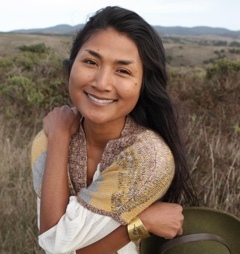
Kalyanee Mam
Kalyanee Mam is an award-winning filmmaker whose work is focused on art and advocacy. Born in Battambang, Cambodia, during the Khmer Rouge regime, Kalyanee immigrated to the United States in 1981 with her family. Her debut documentary feature, A River Changes Course, won the World Cinema Grand Jury Prize for Documentary at the 2013 Sundance Film Festival and the Golden Gate Award for Best Feature Documentary at the San Francisco International Film Festival. Her other works include documentary shorts Lost World, Fight for Areng Valley, Between Earth & Sky and Cries of Our Ancestors. She has also worked as a cinematographer and associate producer on the 2011 Oscar-winning documentary Inside Job. She is currently working on a new feature documentary, The Fire and the Bird’s Nest.
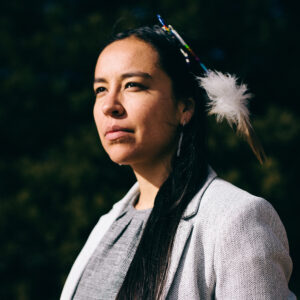
Lyla June Johnston
Dr. Lyla June Johnston (aka Lyla June) is an Indigenous musician, author, and community organizer of Diné (Navajo), Tsétsêhéstâhese (Cheyenne), and European lineages. Her multi-genre presentation style has engaged audiences across the globe towards personal, collective, and ecological healing. She blends her study of Human Ecology at Stanford, graduate work in Indigenous Pedagogy, and the traditional worldview she grew up with to inform her music, perspectives, and solutions. Her doctoral research focused on the ways in which pre-colonial Indigenous Nations shaped large regions of Turtle Island (aka the Americas) to produce abundant food systems for humans and non-humans.
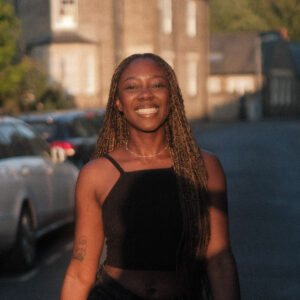
Joycelyn Longdon
Joycelyn Longdon is an environmental justice advocate and academic. Her PhD research centers on the design of justice-led conservation technologies for monitoring biodiversity with local forest communities in Ghana. She is also the founder of ClimateInColour, an online education platform and community for the climate curious, making climate conversations more accessible, diverse, and hopeful.
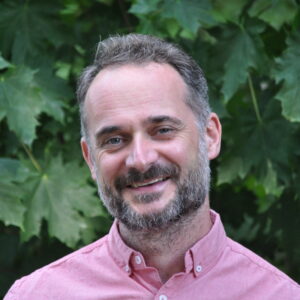
David George Haskell
Dr. David George Haskell is a writer and biologist. His latest book, Sounds Wild and Broken, explores the story of sound on Earth. His past books The Songs of Trees: Stories from Nature’s Great Connectors and The Forest Unseen: A Year’s Watch in Nature have won awards including the Iris Book Award, the John Burroughs Medal, and the National Academies’ Best Book Award, and he is a two-time Pulitzer Prize finalist. David is a professor at the University of the South in Sewanee, Tennessee.
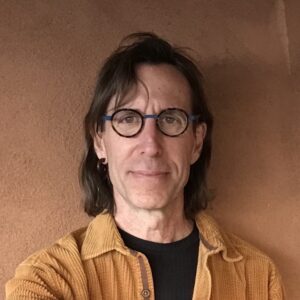
David Abram
David Abram, PhD, is a cultural ecologist and philosopher. He is the founder and creative director of the Alliance for Wild Ethics. His books include Becoming Animal: An Earthly Cosmology and The Spell of the Sensuous: Perception and Language in a More-than-Human World.
facilitator
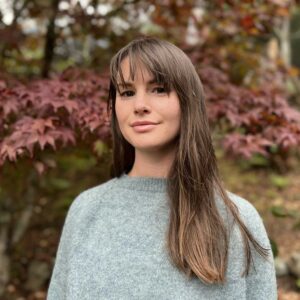
Devin Tellatin is a staff film producer and the programs and event manager at Emergence Magazine. She was part of Kalliopeia Foundations inaugural 2016 Spiritual Ecology Fellowship, and has worked at Emergence since the magazine launch in 2018. She holds a masters degree in International Affairs from The New School in New York City. Prior to joining Emergence, Devin worked in the realm of international development policy at the United Nations where she campaigned for the inclusion of progressive policies that place the living world and voices from the Global South at the center. She is passionate about working with emerging leaders and building creative learning spaces that enables us to reexamine our relationship with the more-than-human world and seed the foundations for ecological, cultural, and spiritual renewal.